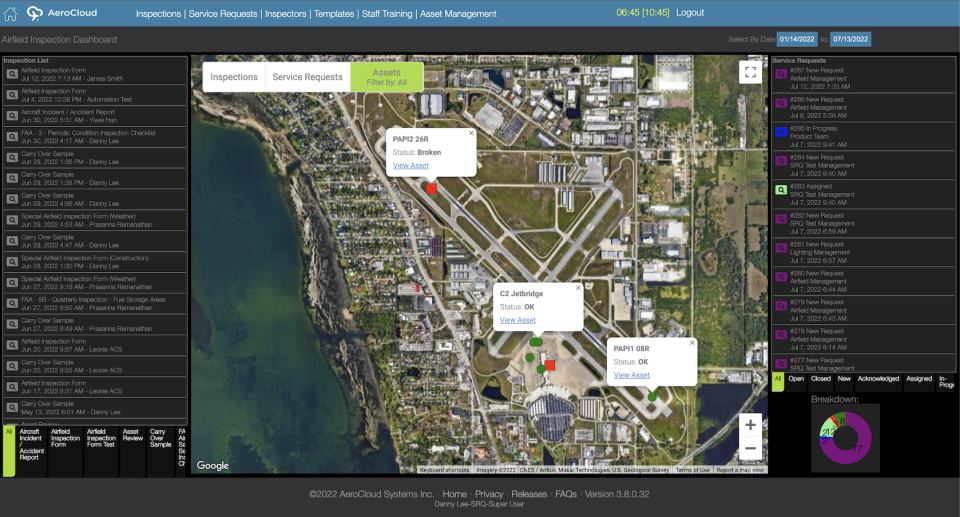AeroCloud, a cloud-native airport management platform, raises $12.6M
AeroCloud, a cloud-native airport management software startup used by dozens of airports across the world, has raised $12.6 million in a Series A round of funding.
Founded out of Chester, U.K., in 2019, AeroCloud says that it's already working with Manchester and Eindhoven airports in Europe, while in the U.S. it counts Tampa International and John Wayne Airport as customers, processing some 150 million passengers each year across the board.
At its core, AeroCloud promises all stakeholders access to data via the cloud, with features that support common airport use cases such as automated gate allocation for flights and optimizing spare gate capacity to increase revenue.

The AeroCloud platform. Image Credits: AeroCloud
The company also says that it taps machine learning smarts to serve its customers with forecasts using historical data, such as estimating passenger numbers for a specific time of year.
"By introducing AI and machine learning into our intelligent airport management system, we are allowing airport operations teams to plan less and action more," AeroCloud co-founder and CEO George Richardson explained to TechCrunch. "Airports have a set of tasks requiring varying degrees of human interaction on a day-to-day basis. With AI, we can reduce that cognitive load on individuals and teams, and assist with freeing up an airport's time to focus on other priority challenges."
The AeroCloud platform also meshes key data such as what percentage of passengers are currently boarded on a specific plane and when it's due to depart, allowing it to predict whether the plane is likely to leave on time. Additionally, it can automatically reassign gates to inbound planes if its scheduled arrival gate has a delayed plane still sitting there.
"These scenarios are happening 100 times a day for customers of ours, and the AI can always beat the human head to a solution," Richardson added.
On the surface, the airport management software market might seem a somewhat niche vertical, but Richardson points to the data to highlight the potential for a new player in the space.

 Yahoo Autos
Yahoo Autos 